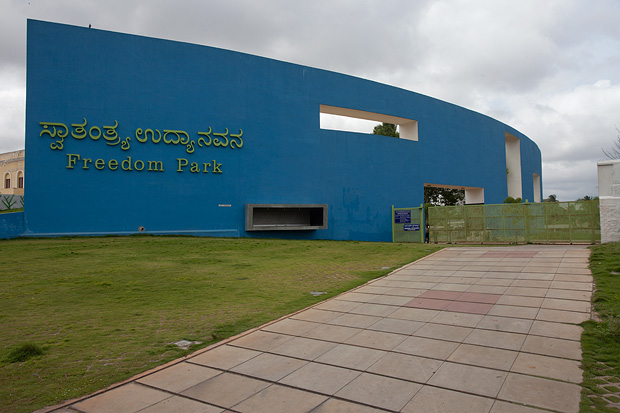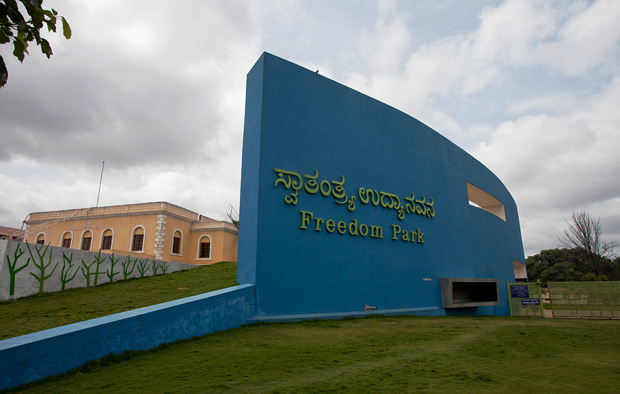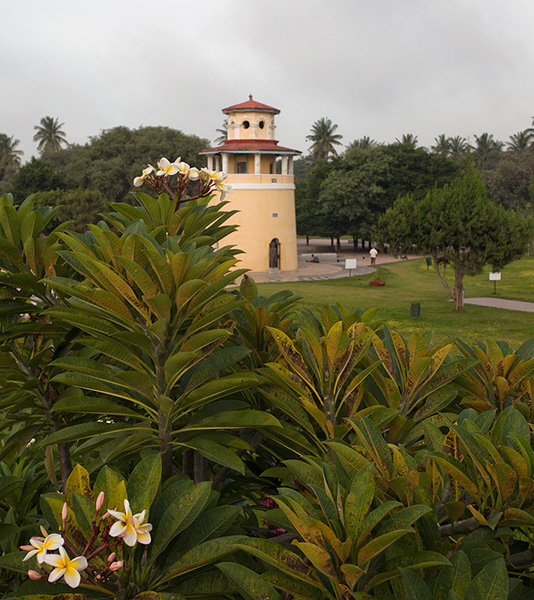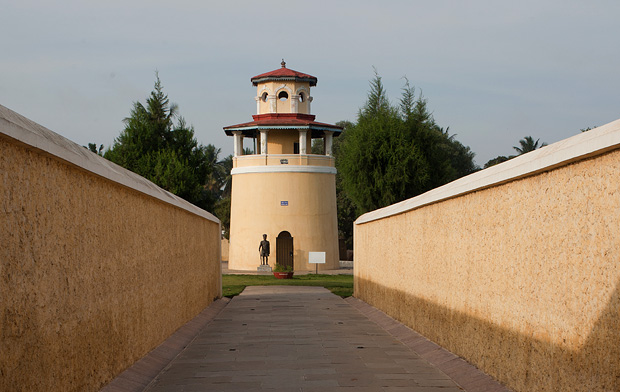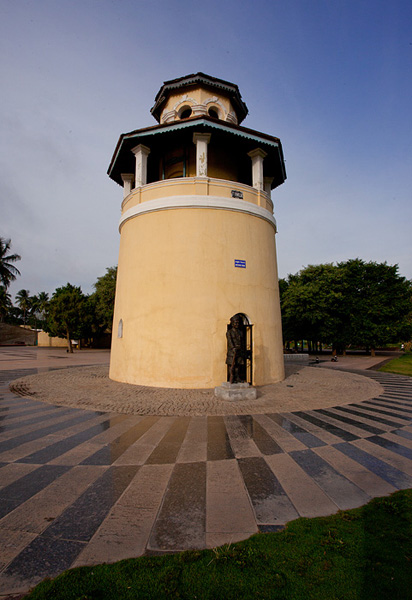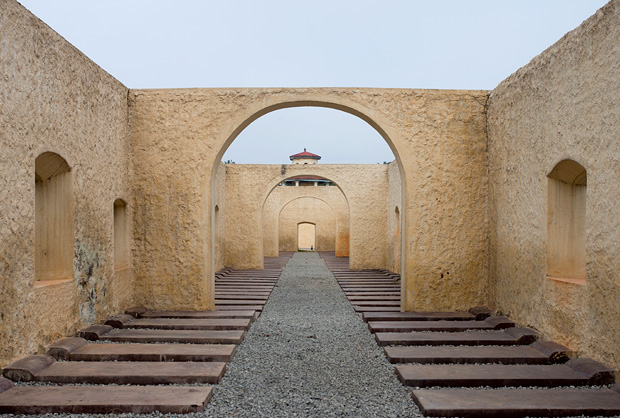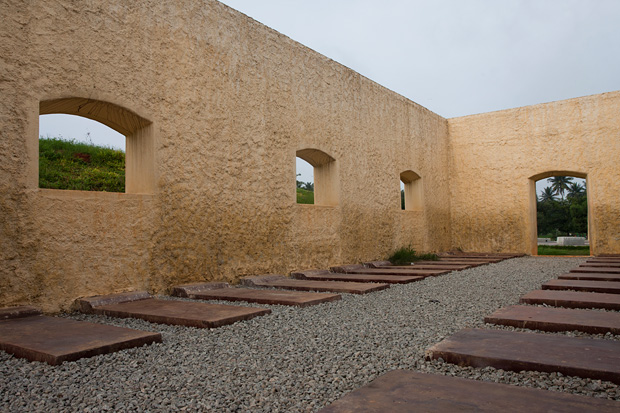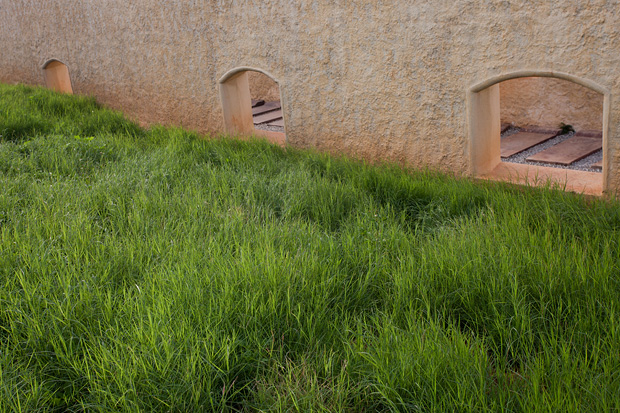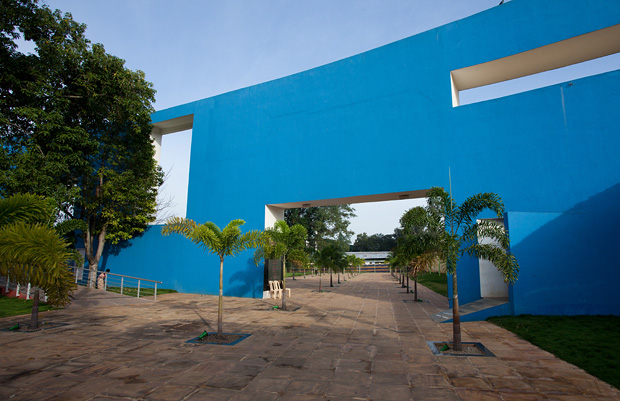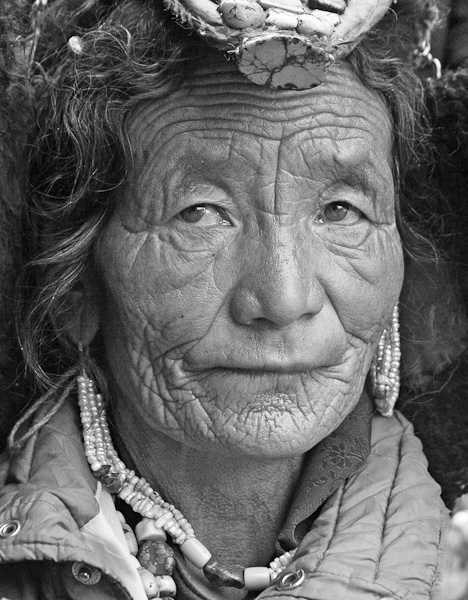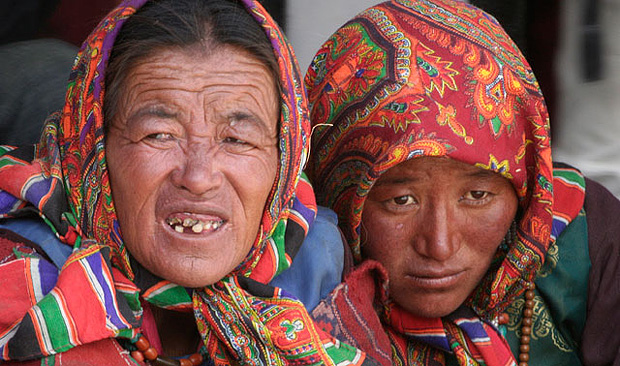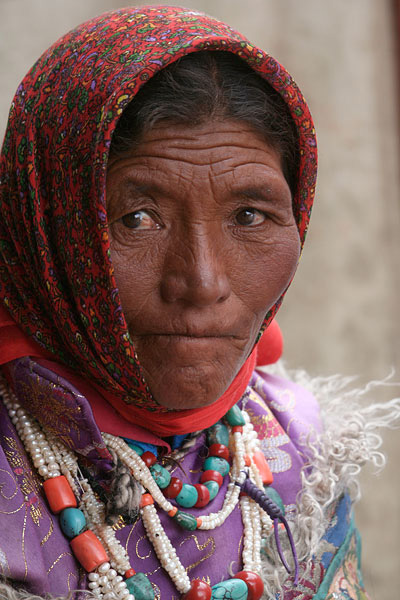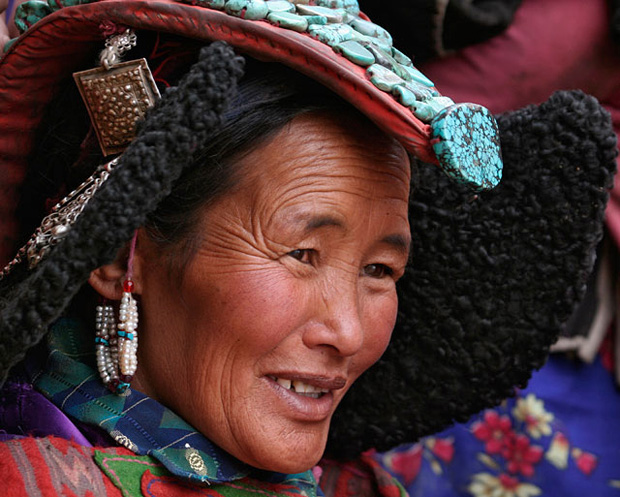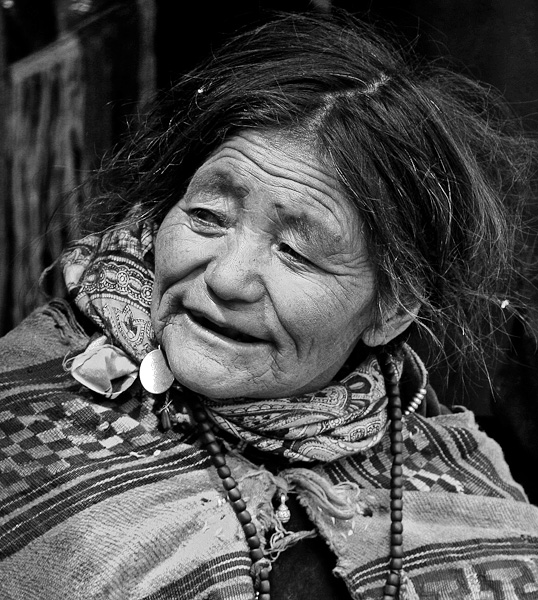Photo Essay: Chandradrona’s Fog
Some images can be seen at a bigger size on paintedstork facebook page
As monsoon clouds move into the western ghats in the early days of June, the hills of Chikmagalur see a remarkable transformation. The vistas of grassy slopes and the dense forests of Bhadra Wilderness disapper under a blanket of thick fog. The fog never recedes for the next three months and it looks as if the skies have disappeared, never to come back again. But come September, it goes away as magically as it had arrived to reveal the beautiful blue skies and to welcome the warmth of the sun.
Chandradrona Parvata, commonly known as the hills of Bababudangiri Hills, host the highest peaks in Karnataka and is home to some of the densest rainforests in the region. I made a dashing visit to the hills this monsoon season and made an attempt to capture the foggy hillscapes. Here is a collection of images of Chandradrona’s Fog.
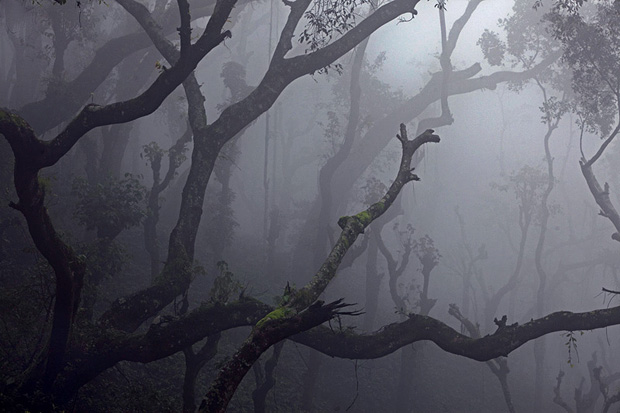
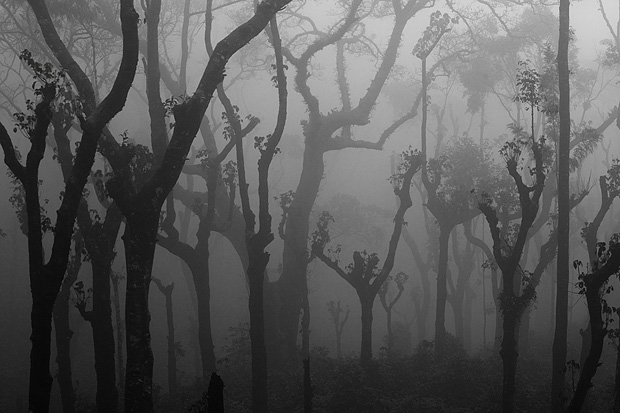
Coffee estates dominate the slopes of Bababudangiri. The district of Chikmagalur, along with neighbouring Coorg, grows bulk of the coffee produced in India. The need for a balance of sun and shade in coffee estates allows coffee growers to retain some of the trees that naturally grow in the region, but they constantly chop the branches and leaves to allow some sunshine to seep in. This creates a weird landscapes full of tall trees standing bare, often with only tender leaves sprouting from their hacked branches. Add a foggy monsoons that hides the details in the landscape and you get an eerie atmosphere in the hills.
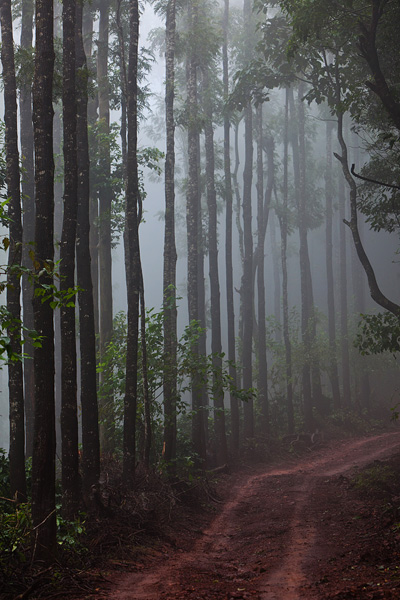
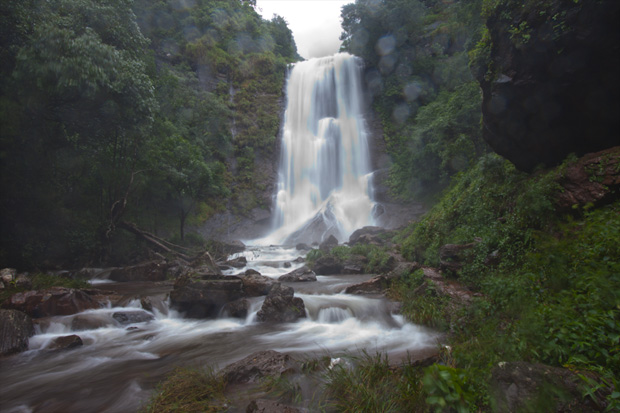
Many roads in the hills are without tarmac and sometimes you can barely call them roads. Many roads are also privately owned by the coffee estates that are spread over thousands of acres. We drove through one such road on an ancient Mahindra that lacked the luxuries of shock absorption. Sometimes we treaded over rocks when the road disappeared in stretches, each time double checking to ensure that our backs have stayed unbroken. The road lead to the roaring Hebbe Falls that was falling with full force in the peak monsoon season. I stood in the narrow valley of the stream and felt the wrath of the waterfall whose sprinkles made me completely wet in a matter of seconds. I went there determined to take a picture and decided not to step back despite being faced by a jet of droplets hurled away from the waterfall into me. Keeping the camera covered most of the time, I set it up on a tripod, composed blindly and hurriedly took a picture, exposing the camera in the open just for a few seconds. The lens surface became completely wet in those few seconds and you can see the droplets in the picture. I knew this was a task meant to fail, but I had no heart to come back without trying.
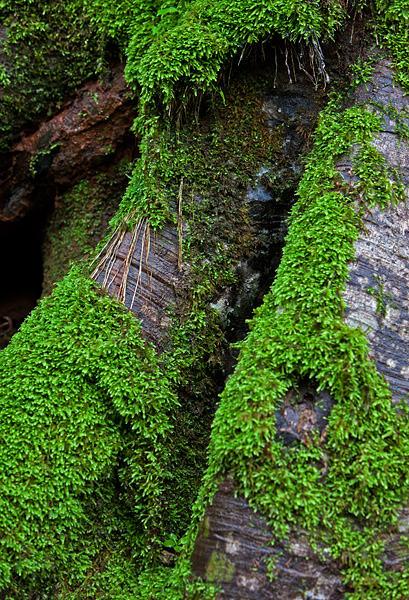
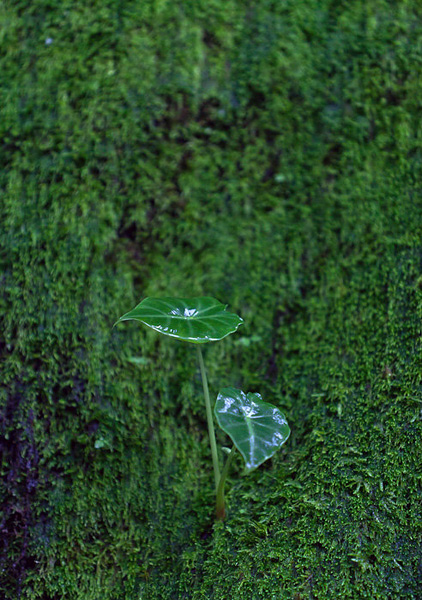
Monsoon is the season of fertility in the highlands of Chandradrona. Every exposed surface remains wet all through the three months of rain. Life in different shape, form and size grows effortlessly at the slightest opportunity; even tree trunks are never spared.
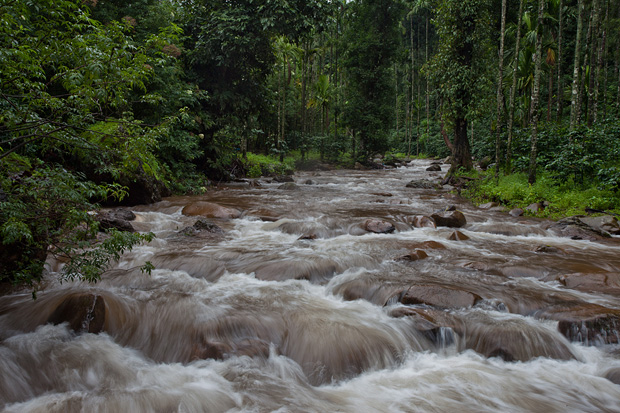
Innumerable streams crisscross the forests in these mountain, sometimes rushing down the hills in a great hurry and sometimes meandering gently through the forests. They come together in River Bhadra and feed the plains of the Indian peninsula. These streams come alive during the monsoons, charged by the continuous rains that keeps pouring throughout these three months.
Prints of all the images available. Request for prints.
